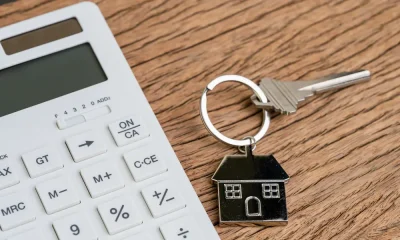Investment
European Real Estate Market Slowdown

The fragility of the European real estate market could start to wind down during 2020, given a series of events that threaten to dampen the outlook for the area.
Even though the real estate markets in most of the countries had rebounded strongly since the 2008 financial crisis, led mainly by historically-low interest rates, the economic cycles are bound to repeat themselves. As a result, we should carefully analyze some of the factors that might lead to poorer performance.
Synchronized economic slowdown
A report published by the International Monetary Fund on October 1st, 2019, provided an outlook for the world economy and one of the main takeaways had been the mention of “synchronized economic slowdown”. Speaking about Europe, the IMF considers the region to be under macroeconomic strain, alongside emerging markets from Latin America and the Middle East.
Even though the rebound in real estate had been stronger than the overall bounce in economic activity, high valuations could turn out to be hard to maintain, given that analysts had already expressed concerns about housing bubbles in most of the developed cities. If the economic slowdown continues at the same pace, we could start to see property prices start to ease, but what will happen if unexpected events take place?
Coronavirus – a new black swan?
The Coronavirus or Covid-19, as it has been labeled by the World Health Organization (WHO) is the main concern at the beginning of 2020. The virus had already infected more than 87,000 people worldwide, with the majority of them located in China. Even though the fatality rate is 3.4% right now, and the number of deaths is way lower than the one generated by the usual flu, a wave of panic had spread at a global scale, mainly due to the uncertainty surrounding this new virus.
With consumption accounting for more than 50% of GDP in most of the European nations, people afraid to spend too much time in the public will translate in weaker economic activity. The current level of indebtedness by many members also prevents the fiscal and monetary capacity to stimulate economic growth.
There are already rumors related to a renegotiation of the European fiscal rules since the EU governments cannot exceed 3% of GDP fiscal deficit. Public authorities had thus far been reluctant to act until further data show up, but time is running against Europe right now.
Italy – the new “sick patient” of Europe?
Carrying one of the largest debt-to-GDP ratios in Europe and with slow economic activity during the past two years, Italy is the most vulnerable country right now, considering that the coronavirus seems to be spreading at an alarming rate. At the time of writing, there are 1128 confirmed cases and 29 death, but less than nine days ago, the country had only 5 cases reported. Economists predict an economic contraction in Italy for Q1, 2020, and if the epidemic is not contained, things will get worse as we move forward.
Shopping malls and trains are empty, restaurants have fewer clients and the number of tourists had dropped meaningfully due to travel warnings already announced by several important countries. Tourism had been one of the main engines behind real estate activity in the past years, and with the current uncertainty, we should start to see valuations on a downward path.
Balancing short-term with long-term factors
Although the short-term outlook for Europe is sorrow, investors are now looking for hopes in the longer run. Real estate developments could differ on a country-by-country basis, given that there’s still fiscal space in some areas. A certain decoupling in terms of performance won’t be too good, but at the same time, it will provide some relief for real estate investors still wanting to find some investment opportunities.
“As long as uncertainties won’t extend for too long, the long-term picture will look brighter since the current drawback will mean better valuations and increased upside potential” , according to Ofir Eyal Bar, a real estate investor with stakes in Western-European countries. In the absence of positive developments, though, risk aversion should be the main theme, and a negative self-reinforcing pattern will gradually advance.
Summary
If we look back to the last 100 years, each panic had been a huge opportunity to invest in the long run at a much lower price. We must acknowledge that what goes up must go down at some point in time and the real estate market is not an exception. Investors will have a real challenge in finding excellent investment opportunities, given the poor short-term outlook, but keeping the focus on the long run will help avoid falling in the fear trap like most of the people.






